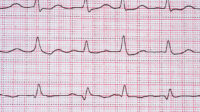Are you getting ready for your Nephrology Board Exam? The best way to prepare is with Nephrologist questions. With only an 80% pass rate in 2023, the Nephrology exam is notoriously tricky. A comprehensive understanding of the categories found on the exam can be hard to manage, but by practicing a variety of questions you’ll be able to target your trouble areas.
Here are 4 free Nephrology practice questions to get you started.
How did you do? Whether you aced them all or bailed after the first question, you can always use more practice.
What is tested on the Nephrology Board Exam?
The ABIM Nephrology Board Exam is given over the course of a 10-hour timeframe. In that time, you’ll answer 240 single-best answer formatted questions.
According to the latest ABIM blueprint, this exam covers the following topics:
- Sodium and Water Abnormalities 8%
- Acid‐Base and Potassium Disorders 9%
- Calcium, Phosphorus, and Magnesium Disorders and Stones 4%
- Chronic Kidney Disease 22%
- Hypertension 10%
- Tubular, Interstitial, and Cystic Disorders 4%
- Glomerular and Vascular Disorders 12%
- Kidney Transplantation 11%
- Pharmacology 5%
- Acute Kidney Injury and Intensive Care Unit Nephrology 15%
The ABIM Blueprint further breaks down the subjects covered on the nephrology test so you can get a better sense of how to target your study time.
The AOBIM Nephrology written exam is a day-long exam consisting of 300 multiple-choice questions.
According to the latest AOBIM blueprint, the exam covers:
- Fluid, Acid-Base, Electrolyte Physiology/Renal function testing 2-6%
- Mineral metabolism/disorders(PO4, Ca, Mg) 2-6%
- Hypo/Hypernatremia 2-6%
- Hypo/Hyperkalemia 1-5%
- Acid-base disorders/Renal tubular disorders 8-12%
- Acute kidney injury 7-11%
- Pregnancy and the kidney 1-3%
- Overdose/Toxic nephropathy/Intoxication 1-5%
- Primary glomerular disease 5-9%
- Secondary glomerular disease 4-8%
- Diabetic nephropathy 2-6%
- Hypertension 3-7%
- Chronic kidney disease 3-7%
- Peritoneal dialysis 3-7%
- Hemodialysis 6-10%
- Renal transplantation 3-7%
- Vasculitis/Vascular disorders of kidney 1-5%
- Tubulointerstitial disease 1-5%
- Urolithiasis 1-3%
- Obstructive uropathy 1-3%
- Urinary tract infections/Pyelonephritis 1-4%
- Cystic disease/UT anomalies 2-6%
- Familial disorders of kidney 1-5%
Ready to get down and study for the nephrology boards? Check out the BoardVitals Nephrology Question Bank for access to more than 500 nephrology practice questions written and reviewed by Nephrologists who have recently taken their Board Exam. Each question comes with detailed explanations and references to act as a mini-lecture for the topic it covers. By understanding the question, users can gain a comprehensive understanding of the topic.
Good luck on the exam!




